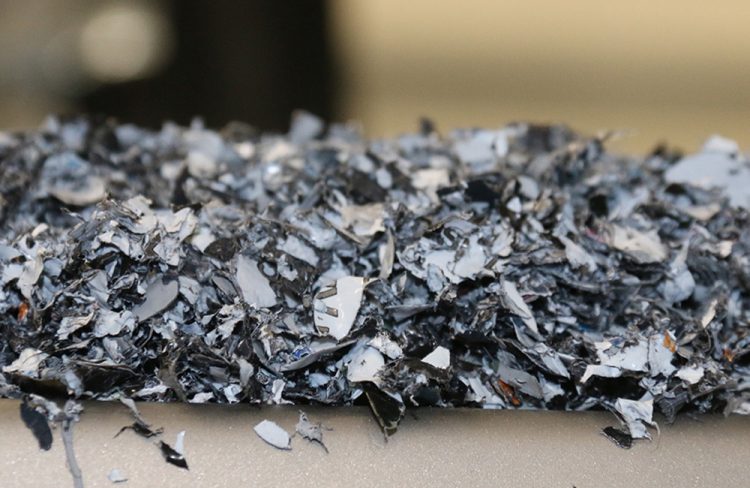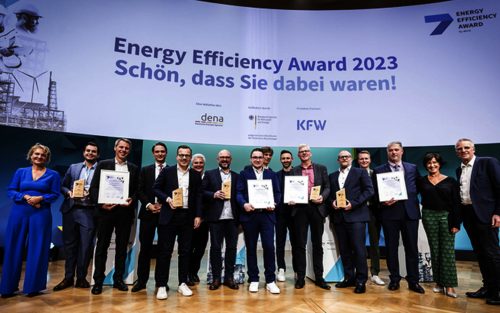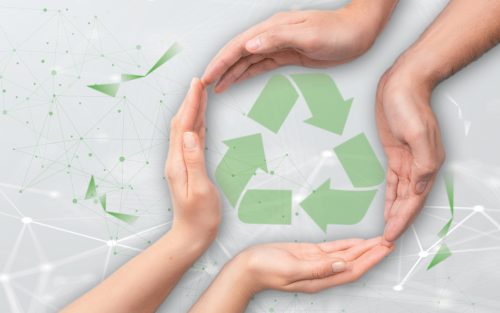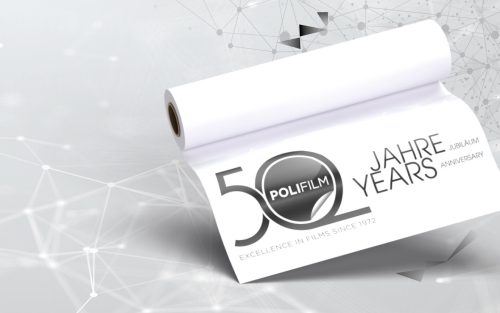
Energy efficient Recycling
Fluff-to-Film Technology
- Recycling without regranulation
Direct further processing of waste films - Proven energy saving
by removing a whole process step - Possible for films that were previously difficult to recycle
gentle process due to polymer structure - Everything “inline” – from 2023
Consecutive film production and recycling
Energy efficient &
suitable for challenging films
Energy saving recycling sounds promising. Energy efficient recycling with simultaneous processing of previously difficult to reuse film types, sounds almost too good to be true, but only almost! As part of the development of POLICYCLE, we are investing in a technology that makes that entirely possible: energy efficiency & recycling of even adhesive coated materials.
Modern Recycling has a name –
Fluff-to-Film
Fluff to Film is the name of the production technology and the key to improved recycling rates and efficiency. By using this new technology, the energy intensive process of regranulation is completely eliminated along with the elimination of the need for additional heating, which protects the polymer structure. As a result, recycling and extrusion of new films go hand in hand.
How it works
From the used film directly to the new film
Until now, the used films were first shredded, then regranulated, (i.e. melted down and cooled again) before they were processed into new films. With fluff to film technology, this step is completely eliminated. Instead, the waste material is shredded and fed directly back into the extrusion process. Everything is done inline, using modern equipment and our knowledge of recycling technology and regranulate processing, thereby saving time and increasing efficiency in this energy intensive process.

New possibilities for recyclate sources
Now possible with more challenging film types such agricultural stretch, protective films and label solutions.
Thanks to the polymer friendly processing method and direct extrusion without the curing time needed for the regranulate, we are able to process even used films that previously could not be recycled at all or only under very limited conditions. With Fluff to Film, we can now significantly increase the recyclate ratio of our solutions across the POLIFILM group.
Would you like to learn more? We will be happy to help you!
Awarded twice!





